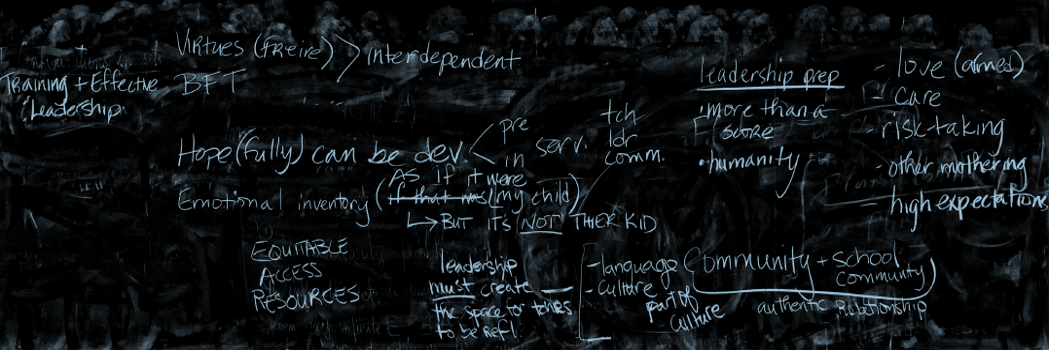Radical Care Week #7/March 18, 2021
Of the many themes that emerged in this week’s readings, I want to explore—in this brief reflection—the role of parents in Critical (Race) Caring. I started the assignments by reviewing the Parent Power video, which outlined the 15-year trajectory, including successes and challenges, of parent organizing in the Bronx, especially in District 9 through the Community Collaborative to Improve District 9 Schools. Despite some heart-breaking setbacks, including being rebuffed by then-Chancellor Harold Levy, the Bronx parents persisted and, over several years, were successful in generating reforms that included enhanced teacher development (financed by the district and supported by the United Federation of Teachers); citywide middle grade reform; and creation of new schools in high-need neighborhoods, among others. Success factors included the energy and determination of the parent leaders and the supporting role played by the Annenberg Institute and by the non-profit community (e.g., New Settlement Apartments), serving as respectful allies who brought complementary skills to the collaborative table.
Parents make varied appearances in the readings. Curry notes that parents are not included in the firewalk rite-of-passage ritual at a California high school, a decision that she analyzes at some length, weighing the pros and cons within the school’s context and observing, in her conclusion, that “when instituting such rites, practitioners may also want to address some of the tensions identified in this article, specifically the role of parents…” (915). Rolón-Dow’s ethnographic study of Puerto Rican girls in an urban school presents some harsh and seemingly unwarranted judgments made by teachers about students’ parents—for example, Mr. Rosenfield’s beliefs “that students’ homes were bad and uncaring places,” which kept him from “joining in a collective effort to care for students” (97). By way of contrast, Antrop-González & DeJesús cited examples of teachers and counselors reaching out to parents on behalf of students, enlisting parents’ help in keeping students on course. As one student in this article observed: “They do that because they care about you. They want you to succeed and accomplish all your work” (429).
Rivera-McCutchen uses “valuing parents as resources” as one of six basic categories of behaviors identified in the research literature on care theory that form the conceptual framework for her research at a small urban high school in New York City. Her research documented a mixed picture on this aspect of the work: on the one hand, staff members made a critical effort to engage parents in the school experiences of their students; on the other hand, because the “teachers’ expectations for students were fairly low, they failed to capitalize on the parental relationships they had cultivated to create a stronger academic environment for their students” (671). She goes on to observe that caring teachers must go beyond simply making connections with parents; they must seek to create relationships that “harness the families’ existing funds of knowledge as a building block for more traditional forms of learning” (671).



